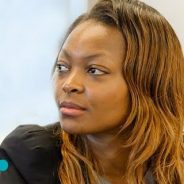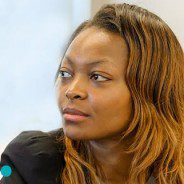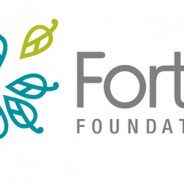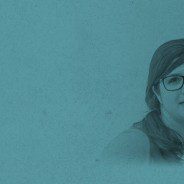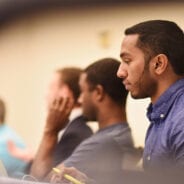Search results for forte foundation:
Metro News & Notes: Avoiding Fake News, Forte In Seattle and More
Good morning and happy Friday!
Here are a few stories you may have missed from the week that was …
Deadline for ’17 Forté MBALaunch Program for Women Extended to Nov. 11th
Great news. If you are a woman planning to apply to business school next fall—for enrollment in fall 2018—there’s still time left to take advantage of a great program from the Forté Foundation designed to help you craft the strongest application possible.
Forté recently announced that it is extending the deadline for applications for its 2017 Forté MBALaunch Program until Nov. 11, 2016. MBALaunch is a comprehensive 10-month program to guide promising female MBA applicants through each step of the application process, providing both a proven roadmap and an unparalleled support network to help you gain admission to your top school. Created by the Forté Foundation, it is designed to support the organization’s mission of increasing women’s access to business education and the business world at large.
MBALaunch applications are currently being accepted for women seeking to apply to MBA programs in fall 2017 (for enrollment in fall 2018). The deadline to submit is Nov. 11th. To be considered for MBALaunch, you must have a bachelor’s degree and demonstrate solid academic standing. Post-undergrad work experience—between two and seven years—is also preferred.
The MBALaunch program begins with a day-long kick-off event in major cities throughout the United States, Canada and the United Kingdom, followed by online webinars, advisor meetings and monthly in-person peer group sessions in your host city. Host cities include Boston, Chicago, Houston, Los Angeles, San Francisco, London and Toronto, and the kick-off events will take place in late January and February.
Interested applicants who do not live in or near one of the MBALaunch program cities can still take part as long as they agree to travel to the closest city to attend the kick-off event in person. After this first event, these participants will join the MBALaunch “Virtual City” group for the rest of the program.
How the Program Works
MBALaunch brings together hundreds of prospective female MBA applicants, creating a valuable network of peers who share the same goals. Intensive GMAT test prep is baked into the program, helping women conquer what many report is one of the greatest obstacles to applying. Two months of GMAT test-prep webinars target the most difficult testing areas, helping Launchers improve their scores and strengthen their candidacy.
The eight remaining months of the program are devoted to helping Launchers build their strongest possible MBA applications. Participants receive valuable feedback on essays and résumés from MBA alumnae. They also get to work closely with admissions consultants, business school representatives and Forté experts to hone their admission interview skills. Along the way, Launchers also learn about resources for financing their MBA and grow both their network of MBA alumnae and their networking skills.
The cost of MBALaunch is $500 (plus travel to the closest program city for the kick-off event if you don’t live in one). Compared to admissions consulting fees and GMAT test prep courses that can run several thousand dollars, believe us when we tell you it’s a steal. Not only that, participants who successfully complete the program receive application waivers from more than 25 Forté schools, as well as discounts from leading GMAT test prep providers and admissions consultants if you feel you still need more preparation. In total, these offers allow you to recoup the entire $500 cost.
How to Apply
Okay—so how do you apply? Complete an online application form, pay a $25 application fee and submit your resume along with answer to two essay questions. The final deadline round, just extended from October 30th to November 11th, applies to applicants for all cities.
Learn more about the Forté MBALaunch program.
This post was originally published by clearadmit.com
New Forté Data Shows Impressive Gains in Female MBA Enrollment
This post has been republished in its entirety from original source clearadmit.com.
Women make up at least 40 percent of the MBA class at 12 leading U.S. business schools this year, compared to just five last year, according to new data released today by the Forté Foundation, a nonprofit consortium of business schools and companies working to increase opportunities for women in business.
“In 2011, less than a third of MBA students were women. Today we’re inching closer to 40 percent in the United States and working to close the gap significantly in another five years,” says Forté Executive Director Elissa Sangster. “Every percentage point gain is not only hard earned, but something to celebrate, and should go a long way in building the senior leadership pipeline at companies and on boards,” she continues. Continue reading…
Forté MBALaunch Program Prepares Strong Female MBA Applicants to Excel
This post has been republished in its entirety from original source clearadmit.com.
This comprehensive 10-month program, created by the Forté Foundation, guides promising female MBA applicants through each step of the application process, providing both a proven road map and an unparalleled support network to help you gain admission to your top school.
Applications are currently being accepted for women seeking to apply to MBA programs in fall 2016 (for enrollment in fall 2017). The deadline to submit is November 15th. To be considered for MBALaunch, you must have a bachelor’s degree and demonstrate solid academic standing. Post-undergrad work experience—between two and seven years—is also preferred. Continue reading…
New Forté “Rising Star” Pilot Program Preps Undergrad Women for Business
This post has been republished in its entirety from original source clearadmit.com.
Undergraduate women on 10 U.S. campuses can now participate in a fun, free online program designed to help them prepare and compete for top jobs in business-related fields. The new “Rising Star” pilot initiative, announced yesterday by the Forté Foundation, is designed to encourage young women of all majors to start exploring career options early to better position them for jobs in business fields immediately upon graduation. By extension, the new program could also help position women to apply to competitive MBA programs after acquiring requisite work experience.
Schools participating in the “Rising Star” program include Carnegie Mellon University, Cornell University, George Washington University, Indiana University, New York University, Ohio State University, the University of Michigan, the University of Texas at Austin, William & Mary and Yale University. Forté handpicked the participating schools, most of which are in the consortium’s business school membership already, with the goal of including a diversity of schools ranging from large public institutions to small private colleges. “We went to familiar campuses where we have a strong support network for this pilot year, with the intention of expanding as soon as the pilot year is over,” says Forté Executive Director Elissa Sangster. Continue reading…
Forté Forums Scheduled in 12 Cities Beginning August 17th
This post has been republished in its entirety from original source clearadmit.com.
August is upon us, which means that it’s almost time for the Forté Forums. These free events are hosted by the Forté Foundation, a nonprofit consortium of leading companies and top business schools committed to advancing the role of women in business. Held in 10 U.S. cities and well as Toronto and London beginning on August 17th, they are designed to help women learn more about the value of the MBA.
Whether you are a college student looking to explore options for the future, have been in your job for a few years and are thinking about a change or are looking for a way to catapult yourself to the next level in your career, the Forté Forums are for you. Continue reading…
Women Leaders of the Smith School Speak at Forté MBA Women’s Leadership Conference
On June 20, two expert businesswomen from the Robert H. Smith School of Business, Elana Fine and Vice Dean Joyce E.A. Russell, discussed the importance of speaking up and asking for more at the Forté MBA Women’s Leadership Conference in Washington, D.C.
Fine moderated a keynote panel on empowering women entrepreneurs. Continue reading…
REGISTER: The Forté Forum at UIC Liautaud
UIC’s Liautaud Graduate School of Business is sponsoring the Forté Forum in Chicago on September 8, 2014. This forum/information session is designed for women to learn about the power one can gain from attaining an MBA degree. The event will be held at the Booth Gleacher Center from 6:00PM to 9:00PM. Continue reading…
The Forté Women’s MBA Conference Returns to Anderson
The Forté Women’s MBA Conference returned to the UCLA Anderson campus on Friday June 20, 2014. The conference is put on by the Forté Foundation, a nonprofit consortium of leading companies and top business schools working together to launch women into careers through access to business education, opportunities and a network of their peers.
2013 Forté Forum Comes to Boston
The Forté Foundation is hosting Boston’s Forté Forum, an event geared toward women interested in pursuing an MBA, on Tuesday, August 20 from 6-9pm at the Sheraton Boston Hotel. The goal of this interactive event is to help women determine whether or not an MBA will help them fulfill their professional aspirations, and provide an opportunity for various business schools to interact with potential applicants.
Onsite registration will begin at 6pm, as will the School Fair. Running the full length of the event, the School Fair will comprise of admissions members from top U.S. and international business schools, with a special emphasis on local schools. Babson College’s F.W. Olin Graduate School of Business, MIT Sloan School of Management, Simmons School of Management, Boston University’s School of Management, and Boston College’s Carroll School of Management are just some of the local business schools that will be represented at the Forté Forum, in addition to other nationally- and internationally-renowned schools (for the full list of participating MBA programs, please refer to Boston Forté Forum’s web page).
For those interested in speaking individually with MBA graduates about their professional experiences, a networking reception with light refreshments will be held from 6-7pm.
From 7-8pm is the MBA Alumnae Panel, which will feature MBA women in various industries and career stages, and will cover a wide range of topics; such topics include how they chose their career, what motivated them to pursue an MBA, and the various successes and obstacles they’ve faced.
At 8:15pm, an Admissions Panel made up of seasoned MBA admissions professionals will discuss admissions requirements, researching schools, the application process, and how to finance an MBA.
Online registration has ended, so those wishing to attend will be prompted to register at the door and pay an entrance fee of $5. Attendees are encouraged but not required to stay for the full duration of the event, and may come and go as necessary. Those seeking more information should email forte@fortefoundation.org.

Connect with the Simmons School of Management at the Boston Forté Forum
The Forté Foundation has invited Simmons School of Management to participate in several of their Forté Forum events, including one in Boston on Tuesday, August 20. The Forum is specifically geared toward women seeking MBAs.
Founded in 2001 to address why fewer women attend MBA programs in comparison to graduate programs in medicine or law, the Forté Foundation encourages women to pursue degrees in business to help them achieve successful, fulfilling careers. The Forté Foundation’s primary obstacle to helping women realize their professional potential are the misperceptions many women have about careers in business, namely that they are inflexible and require a highly specialized set of skills. Consequently, the Forté Foundation endeavors to provide women with the information and resources they need to make informed decisions regarding a career in business.
The Foundation’s partnership with Simmons School of Management seems natural given the latter’s commitment to producing female leaders; Simmons offers an MBA program designed to help women develop their business and managerial skills, fully cognizant of the unique gender dynamics women may face in their professions. In addition, Simmons sponsors leadership development programs with the goal of advancing women in business, holds an annual women’s leadership conference, and fosters progressive research on issues related to women, leadership and management.
Reaching beyond the scope of a typical information session, the Forté Forum event will include guidance from women with MBAs in various industries and stages of their careers, as well as opportunities to interact with Simmons admissions staff. The Forum will also shed light on how an MBA can lead to success in any number of industries, and facilitate conversation among those interested in pursuing their MBA.
The August 20 event in Boston will be held at the Sheraton Boston Hotel on 39 Dalton Street, from 6-9pm. Simmons representatives will travel to a number of additional Forté Forum locations this summer and fall, including New York City, which will host a two-day event on September 3 and 4.
The Forté Foundation encourages woman of all ages and professional experience to attend, welcoming college students and MBA candidates alike. For those who pre-register, the cost to attend a Forté Forum is free; there is a $5 fee for those who opt to register at the event. Those interested can register online with the Forté Foundation.

Dynamic Diversity at Imperial College Business School – Opportunities for Female Students are Changing the MBA Landscape
As the deadline draws near for the upcoming Full-Time MBA class to apply, Imperial College Business School hopefuls may be weighing their funding options. Female students in particular are making up more and more of the demographic seeking an MBA. In fact, this past Full-Time cohort at London’s Imperial College Business School saw 43% of its class identify as female. They’re hoping to raise that number to 50% and to do so, they’ve got resources.

Olivia Xu, Forté Fellow
A Forté Foundation partner, Imperial College hosts the Imperial MBA Women group to create a support system and foster networking opportunities for current and graduated female students. The group holds virtual meetings and utilizes a WhatsApp chat to continue open communication during the current pandemic. The school offers a wide array of scholarships including Forté Fellowships worth more than £27,000.
MetroMBA spoke with Olivia Xu, a current Forté Fellow and Full-Time MBA student at Imperial College Business School. ‘Being a Forté Fellow has not only provided me financial help during the MBA, but also a vast network of other businesswomen who are or have gone through the same journey that I am. It was through Forté that I was able to meet other women across the globe who have similar interests and be able to network and connect with them’ stated Olivia. An international student from the US, Olivia said she was attracted to Imperial because her goal was to attend, ‘a school with a strong track record of keeping the environment at the forefront. Her program focus is on sustainability and responsibility and she hopes to work at a fashion start-up that is striving to reduce fast-fashion waste after graduation. With the recently initiated Sustainable Imperial Strategy designed to transform the school into a carbon net-zero institution by 2040, it’s no surprise students are opting to attend Imperial College Business School to further their careers while making a global environmental impact.

Morgan Mixon, Forté Fellow
Olivia isn’t the only student seeking to make this impact and achieve her MBA from abroad. The diverse and inclusive student demographic (currently consisting of students from 23 countries) entices MBA candidates from all over the world. Morgan Mixon is also a Forté Fellow and Full-Time MBA student at Imperial College Business School. She said that her fellowship plugged her into an ‘international network of women who are thinking about, pursuing or graduates of MBA programmes’. Morgan is currently specializing in innovation and entrepreneurship. She chose Imperial because it’s a top STEM university with, ‘a business school whose leaders and students also are passionate about driving bold change in the world’. She is the co-founder of Cleanest, striving to reduce the diaper industry’s environmental footprint and create healthier, more sustainable wear for infants.
The success of these MBA candidates should come as no surprise. Imperial College Business School’s Full-Time MBA program is one of the first to receive a department-level Bronze Athena SWAN award from the Equality Challenge Unit(ECU) in recognition of its commitment to tackling gender inequality in higher education. For female students looking to apply to the program, they should know they’re in good company.
Students seeking to apply are encouraged to utilize the scholarship resources offered by the school and complete applications prior to the upcoming June 18th deadline to attend this coming fall.
Be Who You Are
Sponsored Content
Why Rice Business Prizes Diversity – Be Who You Are
Here in the heart of America’s most diverse city, the Jones Graduate School of Business at Rice University seeks, values and champions students from a range of backgrounds. The reasons are simple, says Lina Bell, our Director of Diversity and Inclusion. “Research shows that the best business decisions are informed by a multitude of perspectives,” Bell says. “In addition to being good for business, it’s the right thing to do.”
High-achieving people of color, of LGBTQ orientation, of foreign birth and women still face discrimination – which means that picking the right business school means choosing a culture as well as a classroom. They may also face specific challenges, such as financing graduate school without intergenerational wealth or finding an environment where they’re seen as individuals rather than as representatives of a community. This second point is important, since some members of underrepresented minorities say they feel less free to make a mistake or spontaneous comment when they’re seen as spokespeople for their group. At Rice Business, we strive to appreciate each student on their own terms.
This philosophy is integral to Rice Business culture, Dean Peter Rodriguez says. “Organizations and societies truly succeed only when everyone within them is equally valued and supported for who they are,” Rodriguez, an economist, says. “To fully live our values at Rice Business, we have to first commit to ensuring that every one of us can confidently bring their whole, pure self here every day.”
Rice Business Benefits From A Diverse City
Students at Rice Business, while learning in purposely small classes, also benefit from the school’s location in Houston. The fourth largest city in the country, it’s distinguished both by extraordinary diversity – it has the most equal distribution of ethnic groups in any U.S. metropolis – and a pragmatic, business-friendly culture.
Known as a welcoming and progressive city, Houston is the nation’s number one refugee destination, the first major American city to elect an openly gay mayor – twice – and is currently governed by a two-term African American mayor.
On our serene campus near the world’s largest medical center, Rice Business prioritizes diversity and top business skills – and recognizes that the two reinforce each other.
Diversity And Good Business Reinforce Each Other
Research by Rice Business professors confirms the value of these priorities, showing, for example, the power of antidiscrimination law and how innovation can spring from economic constraint, adversity and even living in another country.
This respect for a range of life experiences is what sold MBA student Norma Torres Mendoza on Rice Business. “I knew they were serious about their diversity efforts when I received a called from Dean Rodriguez congratulating me on my acceptance and on my Paul and Daisy Soros Fellowship,” says Mendoza, a member of the Class of 2020. “I knew that my presence mattered to Rice so much that the dean was willing to call. I believed that my voice as a former undocumented immigrant and first generation college graduate Latina mattered, and it mattered enough to add a scholarship behind it.”
Ashley John, an African-American MBA student in the Class of 2020, says the school’s commitment to these values was clear from the moment she applied. Born in Missouri City, Texas, John studied urban affairs at Stanford University before working for five years in nonprofit educational administration. “I was looking for a program with a strong community that was interested in social impact,” she says.
From the start, says John, Rice admissions staffers were thoughtful and candid in helping her prepare for both the quantitative and qualitative parts of her application. They were also hands-on in advising her on financial issues.
Exceptional Scholarship Opportunities
“I think sometimes we don’t like to talk about money, but it’s a really big investment to go back to school,” John says. “Rice had by far the best scholarship packages.”
That receptiveness is echoed by her classmates, and amplified by the inaugural class of the Consortium Fellows Program, which is dedicated to increasing the number of underrepresented minorities in business education and corporate leadership. After Ashley got knee surgery that kept her from driving, members of the Consortium’s Rice Business chapter surprised her with an Uber gift card.
While inclusiveness makes for a happy academic experience, it’s also basic training for modern global business, says Utpal Dholakia, a Rice Business marketing professor.
“It really shows the power of cultural literacy,” he notes. “Business schools need diverse students of all backgrounds. At some point they’re going to be educating each other.”
Rice Business also teaches – and practices – inclusiveness toward gender and sexual orientation. Research by Rice Business professor Mikki Hebl shows that, contrary to cliché, you really can legislate fairness. In a study of antidiscrimination laws protecting LGBTQ workers, Hebl found that such laws both communicate fairness as a social norm and influence behavior with the threat of enforcement.
Promoting Women Leaders: High Priority
Promoting women as leaders is a high priority at Rice Business. At the institutional level, Rice Business is one of just 50 schools selected to partner with the Forte Foundation, a national organization that supports women MBAs with scholarships and training. In 2018, the Financial Times ranked the Rice MBA as the top school in Texas for women.
Stacy Fish, a full-time 2020 MBA student, found the same type of support on campus. “I think if I were at a bigger school I would have felt a little drowned out,” Fish says. Instead, in her very first weeks at school, peers and professors pushed her to take an active role on the committee planning the annual Women In Leadership conference. The experience was so powerful that Fish ran for president of the Rice Business Women’s Association – and won.
Be Who You Are And Who You Want To Be
In tandem with school culture and the global character of Houston, affinity clubs are key to creating a sense of belonging, diversity director Bell says. In addition to the Women’s Association, the options include the Asian Business Student Association, Black Business Student Association, Hispanic Business Student Association, Veterans In Business Association and Out And Allied. Every year, the school’s Diversity and Inclusion Conference gathers hundreds of students, alumni, faculty and corporate participants to discuss the business case for a richly varied work community. All these activities, Bell says, are aimed at one goal: making each Rice Business student feel welcome and free to experiment and learn.
“If you’re looking for an MBA program where you’re going to be taken care of and going to be taken seriously – where you can be who you are and who you hope to become,” Bell says, “the Rice MBA program will be for you.”
Contact:
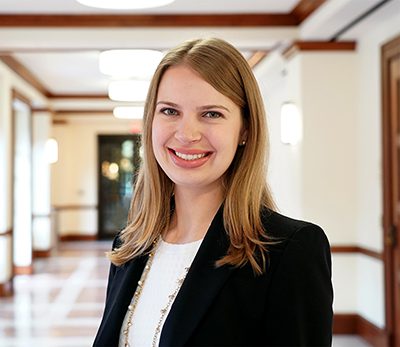
Name: Kalyn Speck
Title: Assistant Director of Recruiting, Recruiting and Admissions
Email: kms15@rice.edu
Phone: 713.348.3732
One Year Later: MBA Program Gender Parity at USC Marshall
Last fall, USC Marshall became the first top-tier MBA program to reach gender parity with the full-time MBA Class of 2020 having as many women as men. It was a massive 20-point percentage increase from the previous year when women made up just 32 percent of the class.
Now that almost a year has gone by, we wanted to reach back out to USC Marshall to see how reaching gender parity has affected this year’s class, the new recruiting season, the business marketplace, and more.
To gain insight into what’s happening at the school, we spoke with Evan Bouffides, assistant dean and director of MBA admissions, as well as Mark J. Brostoff, the assistant dean and director of graduate career services. They both offered unique perspectives on the impact of USC gender parity at the Marshall School of Business.
USC Marshall Class of 2021 Recruiting
While the Class of 2021 recruiting season is still ongoing, it’s not possible to gain a full picture of how achieving gender parity has affected the upcoming class, though Bouffides has witnessed a few changes.
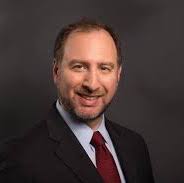
Evan Bouffides, Assistant Dean and Director MBA Admissions, USC Marshall
“This year, industry-wide, many U.S. business schools were down in application volume, but USC Marshall received about the same number of applications as last year,” says Bouffides. At the same time, the “quality has gone way up.” As they’ve been reviewing applications for the Class of 2021, Bouffides believes the candidates have been stronger—both men and women.
Now, while that improvement cannot solely be laid at the feet of gender parity, it’s certainly a factor. Gender parity has made candidates more enthusiastic. Other factors include the continued improvement of USC Marshall’s rankings as well as the overall trajectory of the MBA program.
One thing that hasn’t changed is how Marshall is recruiting MBAs—with one exception.
After achieving gender parity last year and admitting the largest number of underrepresented minorities ever, USC Marshall has set their sights on international diversity, and particularly, international female diversity. “This is where we’re lagging behind,” explains Bouffides. “So, we concentrated our 2021 recruiting efforts on traveling to certain parts of the world including Africa, South East Asia, and Latin America where we haven’t gone before or often.”
Beyond that, Marshall held the same recruiting events as last year, including the third annual International Women’s Day Celebration Event in February. The event was extraordinarily well attended with even more enthusiasm this year over last.
Inside the First 50/50 Class
As for what’s happening with the class who achieved gender parity, you wouldn’t notice much difference from any previous class except that there are more women.
“If you break down the Class of 2020 into geography, academic area, or prospective career, there really isn’t a marked difference between students,” says Bouffides. “There’s definitely a story to be told being a class of 50/50 men and women, but we don’t know what that story is yet.”
What Marshall does know is that there has definitely been a positive vibe when it comes to having a gender equal MBA class. People appear to be generally happy with the achievement, and diversity and inclusion have been bigger than ever.
One noticeable change is the increase in women in leadership in the 40 MBA clubs and organizations. Women have always tended to take on more of those leadership roles, but now it’s even more recognizable.
Women in the Business Marketplace
As for the business marketplace, “obviously, there’s excitement about the fact there’s gender parity,” says Brostoff. And while it hasn’t opened up any floodgates in regards to internship recruiting or getting on the radar of new companies, there has been quite a bit of positive reaction. This is especially good news considering the Forté Foundation’s latest research, which revealed that gender inequality impacts almost half of all MBAs in the workplace.

Mark Brostoff, Assistant Dean and Director, USC Marshall Graduate Career Services
“We’ve had quite a few companies decide to start recruiting at USC Marshall when they might have been a little more hesitant in the past,” Brostoff explains. And while he wouldn’t lay all that success on the back of gender parity, it’s played a role, especially for tech companies.
Tech companies have been under the microscope recently for their obvious lack of gender equity, particularly in light of the #MeToo movement. And though those companies aren’t setting specific targets or quotas for the number of female employees they need, the fact that USC Marshall has so many female MBAs coming up is quite attractive. “Companies appreciate the opportunity to increase their gender inclusion initiatives,” says Brostoff.
As for what the career center is doing to continue this positive gender parity trajectory for the school, they’ve been looking to create more and more opportunities for women in business. For example, they recently hosted a new case competition on women in business, and they’ve been able to engage more female alumni and female executives to come to campus.
We’ll continue to keep an eye on gender parity at USC Marshall and keep you updated as we learn more.
This article has been edited and republished with permissions from its original source, Clear Admit.
MBA
Tuck School of Business MBA Program Structure
The lone Dartmouth Tuck MBA offering is a traditional, full-time, two-year program. The near 300 students in the program are broken up into large groups of 60 to 70 students through the first fall term. Those groups are then broken down even further to five-to-six per study group. The program’s quarter schedule features three terms of class and a summer term, which is usually reserved for internships.
To fully complete the program, students must complete 41.5 credits in the first year, and 36 is the second for a total of 76.5 credits.
Curriculum
Students start their MBA schedule with the two-week-long Tuck Launch program, which takes place early August prior to the start of the first academic year. First year students officially begin courses in late-August, a couple weeks prior to second-year students. The bulk of courses in the first year are required core courses. During the spring, first-year students must complete the First-Year Project, which is a five-student consulting project.
Second-year students may choose from over 100 electives and must complete a minimum of 12 full-term courses. Students in the second year also have the opportunity to study abroad with many of Tuck’s international exchange programs, which includes universities in Europe, Asia, and Latin America.
Full-Time MBA Rankings
• U.S. News & World Report: 11
• Bloomberg: 5
• Forbes: 6
• Financial Times: 12
• The Economist: 10
Class Profile
A total of 287 students are enrolled in the Dartmouth College Tuck School of Business Class of 2024, 45 percent of which are women. Forty-three percent of the class is made up of international students, and 31 percent are U.S. minority students.
Among these students, the average GMAT score was 726, and the undergraduate GPA was 3.52. The average work experience of new students was 5.6 years.
Career Statistics
The most recent Tuck School of Business employment report revealed that MBA graduates from the school earn a median base salary of $175,000 and a median signing bonus of $30,000. 93 percent of MBA grads earned a signing bonus, ranging anywhere from $5,000 to $128,500.
Within three months of earning the degree, about 98 percent of Tuck MBA holders were offered jobs, with 96 percent accepting new roles. The majority of hires were in consulting (47 percent), financial services (20 percent), and technology (11 percent).
Tuition, Scholarships, and Financial Aid for the Dartmouth Tuck MBA
The annual base tuition for the Dartmouth Tuck MBA is currently $77,520. With other costs, including books, supplies, and fees, among others, the total cost is $114,825 for first-year students living on campus.
All U.S. students qualify for an annual direct unsubsidized loan for $20,500 from the U.S. Department of Education. The current interest rate is 6.54 percent. Those that need more financial assistance than the unsubsidized loan can provide are eligible for the Graduate PLUS loan, which has a current interest rate of 7.54 percent. Private, international, and school-direct loans are also eligible for those that qualify.
The Tuck School of Business offers multiple scholarship and fellowship opportunities, including through the Forté Foundation and the Yellow Ribbon Program for U.S. armed services members and veterans.
Admissions to the Dartmouth Tuck MBA
In order to apply for the Dartmouth Tuck MBA program, the following must be submitted:
• A completed online application form
• A non-refundable $250 application fee
• Academic transcripts
• GMAT/GRE scores (no minimum score required)
• Proof of English proficiency (if necessary)
• Essays
• Resume
• Two letters of reference
All applicants admitted to Tuck will interview prior to an admissions offer. Round 1 applicants who submit their complete application, including Letters of Reference, by September 1, 2022 (or October 1, 2022, if applying to Tuck through the Consortium), and all Round 2/Round 2 Consortium applicants who submit their complete application by December 1, 2022, will be guaranteed an interview. For all other applicants, interviews are offered by invitation only. We will review your application and invite you to interview if we believe it will help us learn more about how you demonstrate our admissions criteria.
2022-2023 Dartmouth Tuck Full-Time MBA Deadlines
Round 1: September 26,2022
Round 2: January 4, 2023
Round 3: March 27,2023
Working on your Tuck School of Business application? Check out the Clear Admit Tuck Essay Topic Analysis for advice on how to approach your essays.
Get an MBA Admissions Edge with the LiveWire Data Dashboard
Curious about your chances of gaining admission to top business schools? Now you can see how hundreds of previous applicants fared at Tuck in just a few clicks. The LiveWire Data Dashboard’s interactive data visualization tools allow you to spot trends, compare MBA programs, and benchmark your stats against successful applicants at your target schools. Learn more here! Ready to explore the data? Purchase a 30-Day or 365-Day subscription in our shop for immediate access!
The Big Picture: The 5 Most Important MBA Numbers of 2018
Each year there’s a ton of new information that comes out about MBA programs. From new rankings to the latest GMAC news, there are a thousand little tidbits that can overwhelm applicants, students, and alumni. We’ve collected the most important MBA numbers of 2018.
To pare down the news into the information you need to know, we’ve taken a look at the big picture of the MBA for 2018 and outlined the five most important pieces of data you need to know. We’re talking about everything from the decline and U.S. MBA applications to the increase in female enrollment, the higher salaries and GMAT scores, as well as the increase in interest in technology. Continue reading…
3 Online MBA Scholarships Worth Remembering
Navigating the maze of scholarships available to MBA students (really, students in general) can become a bit overwhelming. And for students hoping to earn a degree online, the search can seem never-ending. To help, we’ve broken down a handful of the most intriguing Online MBA scholarships.
Just How Did USC Marshall’s MBA Program Attain Long-Elusive Gender Parity?
This fall, USC Marshall became the first top-tier MBA program to reach gender parity. The incoming full-time MBA Class of 2020 has as many women as men—actually a few more—52 percent. This notable achievement is a massive 20-point percentage leap from last year when women made up just 32 percent of the incoming class.
“We are proud to achieve this distinction,” Dean James G. Ellis said in a press release. “Our ongoing focus on diversity and inclusion is playing out in real numbers now. This is only the start.”
Gender Parity in Business School
While many other top schools have been working to reach gender parity over the last few years, they’ve thus far fallen short of the 50-50 mark. According to a 2017 report by the Forté Foundation and the Graduate Management Admission Council (GMAC), the average enrollment of women in full-time MBA programs at 36 business schools is 37.8 percent. That’s an improvement of less than one percent from 2016, when it was 37.1 percent, and only a few percentage points up from 2013, when it was 34 percent.
Several other leading schools have hovered in the low 40s in recent years—including Michigan Ross (43 percent), Yale School of Management (43 percent), Dartmouth Tuck (44 percent), and the University of Pennsylvania’s Wharton School (44 percent). And Northwestern’s Kellogg School of Management recently announced that its incoming Class of 2020 is 46 percent women, a record for the school. These figures all make USC Marshall’s achievement even more impressive, though it’s also a statement on women in business.
In general, women earn 60 percent of graduate degrees and fill up more than 50 percent of graduate classes, even those in male-dominated professions such as law and medicine. MBA programs, though, have lagged stubbornly behind, which many believe to be the result of a combination of factors. Some of these include the timing of business school, which is later than law or medical school because of the required prior work experience; the return on investment, and the fact that men with an MBA out-earn their female counterparts throughout their careers.
Still, there have been strides forward. Just five years ago, only three of the top 25 schools enrolled more than 40 percent women in their MBA programs. Last year, nearly half had reached that mark. Some schools have yet to release class profile information for the current incoming class, so it remains to be seen how this year compares to last. Regardless, USC Marshall reaching the 50-percent mark is a standout achievement, particularly since it hadn’t even broken 40 percent before this year.
“I’m super thankful and proud to be here at this particular point in time,” Gabriela Omenn (2020) said. “One of my key interests beyond business school is to elevate women and get them into positions of power, so it’s directly aligned with where I want to go in my career. It feels really amazing to be among such a high class of students, and I believe it’s going to be something that pays off in dividends after school is done.”
USC Marshall MBA Class of 2020, More Than Half Women
To get an idea about how USC Marshall became the first top business school to break through the gender parity barrier, we talked to Evan Bouffides, assistant dean and director of MBA admissions.
-
Recruiting Efforts Were Strong
According to Bouffides, this past year was a solid one for recruiting at USC Marshall across the board, with improved outreach to all prospective applicants, women included. But Marshall did place a concerted effort on reaching women applicants specifically, he said. These targeted outreach efforts included participation in Forté Foundation events (Marshall is a Forté member school), programming for women as part of on-campus visits, and online marketing campaigns.

Evan Bouffides, USC Marshall Assistant Dean and Director of MBA Admissions / Photo via USC Marshall
“We’ve been a bit more deliberate and certainly more comprehensive in the way we send messaging out about our program, about the admissions process, and about the university,” explained Bouffides. “ In general, I feel that we touched a lot more people via electronic communication than we have in the past.” In particular, the school increased its follow-up communication with candidates who attended various events.
Bouffides also thought January’s Women’s Week recruiting event was the best one yet. More than 100 women visited campus for this one-day event to learn about the school, meet other applicants, and get a taste of what it’s like to be a USC Marshall MBA student.
“Not only did we have a larger group than in the past, but we also, hopefully, presented a better case for ourselves than we had in the past,” said Bouffides. “Our students also did a great job contributing to the decision-making process in a tangible way.”
Current students play a big role in recruiting efforts for prospective applicants at USC Marshall. Both Marshall’s ambassador students, who work directly with admissions, and student members of its Graduate Women in Business club, reached out personally to candidates and admits as part of the admissions process to share their unique student perspectives. Many of these students also helped organize some of the recruiting events for prospective applicants.
“We also have a follow-up program, where once a person is admitted, we put them in touch with a lot of different groups, students being the preeminent group,” Bouffides explained. “The students did a great job answering questions and convincing people to join us.”
-
Improved Rankings and Reputation
Out of the many factors that may have contributed to USC Marshall reaching gender parity this year, the school’s improved rankings and reputation had a distinctly positive effect. Marshall jumped four places to 20th in the latest U.S. News ranking of leading MBA programs. And the Financial Times ranked Marshall as one of the best business schools for women to pursue an MBA (20th in the world and 12th in the United States).
“Our rise in rankings and the good press we’ve had over the last year or two has helped make us more attractive to candidates,” said Bouffides. “This, along with our other efforts, helped bring the entire class together.”
-
A Great Yield
Another factor that contributed to USC Marshall’s gender parity was this year’s impressive yield—the percentage of admitted students who ultimately enroll. It was a significant change from last year’s class, when less than a third of admitted female students (31.3 percent) chose to enroll. This year, 40.1 percent of admitted females entered the full-time MBA program. This meant that more of the students USC Marshall wanted actually attended, resulting in the highest-quality class on record.
The average GMAT score for the Class of 2020 is 705, up from 703 last year, and the average GPA is 3.5 compared to 3.48. This year’s incoming class also includes a record number of underrepresented minorities—21 percent of domestic students, compared to 16 percent previously.
“This year’s applicant pool was the strongest in our program’s history,” said Bouffides. “They brought the highest average GMAT score and the highest average GPA. The women, in particular, were extraordinarily well prepared.”
USC Marshall in the Future
So, where does USC Marshall go from here? We asked Bouffides if the school hopes to reach the same levels in coming years, but he said there is no prescribed quota for women in future classes. The goal is always just to bring in the most robust possible class, and diversity is a big part of that—gender parity being just one aspect.
“First, let me explain that we didn’t go into the admissions cycle this year stating that gender parity was our goal. We never do that for any particular metric when it comes to admissions,” said Bouffides. “We didn’t go into the season with parity as a goal, but it was an outcome of the fact that we had a large and talented group of women applying to the program. My hope is that now that we’ve hit this mark, it will be easier going forward, and hopefully, we’ll be even that much more attractive to women and men as well as they think about schools to which they may apply.”
As for Omenn, she sees USC Marshall as a model for the future where diverse backgrounds represented by different genders and groups can come together to share their ideas and perspectives—elevating discussions for a richer experience.
“Gender parity is a good model for future applicants, not just at USC but at any business school,” said Omenn. “In years to come, applicants will be able to see more of themselves in business school, which will hopefully inspire them to keep striving for their goals.”
This article has been edited and republished with permissions from our sister site, Clear Admit.


